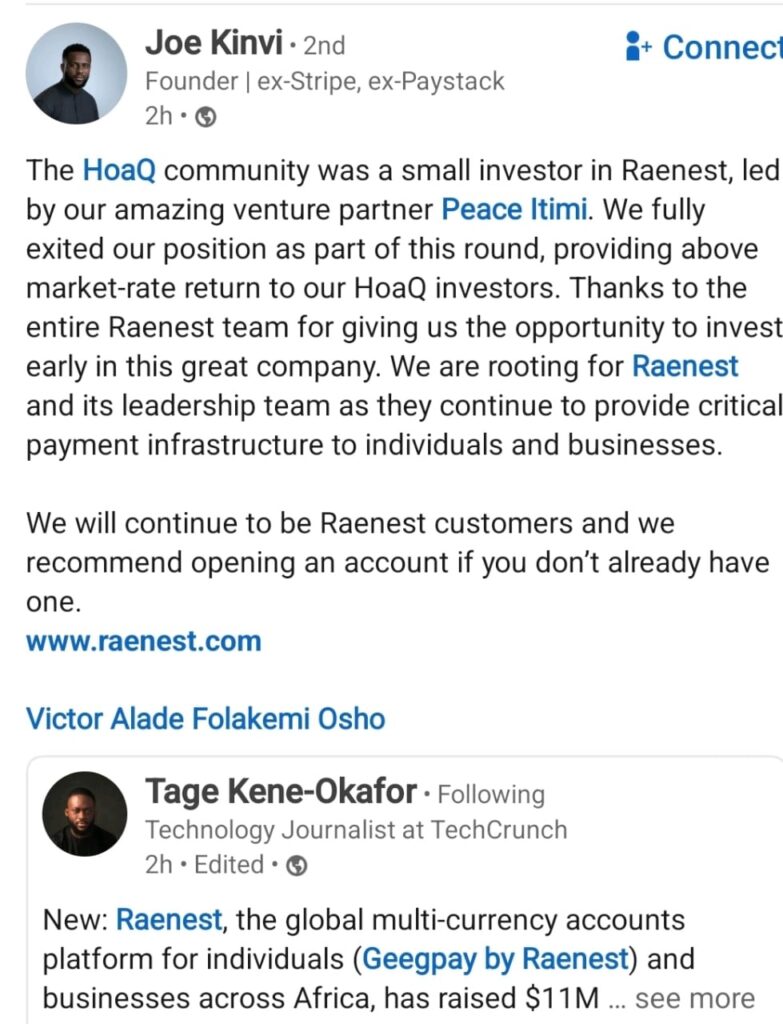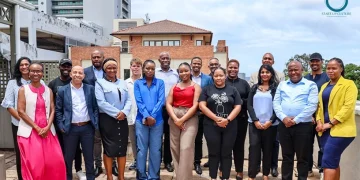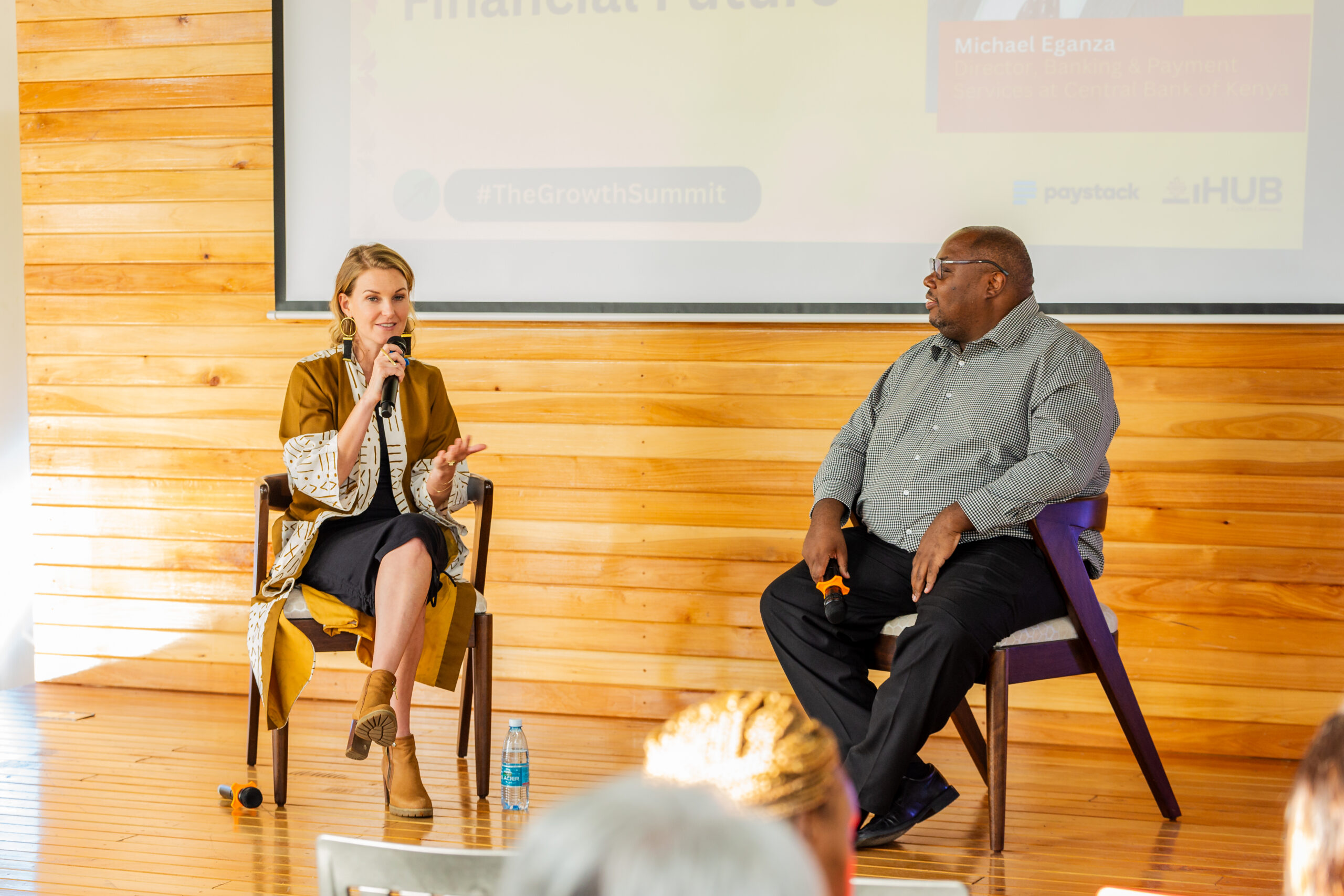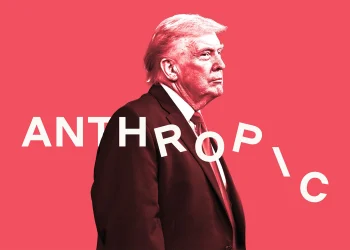For years, African freelancers, remote workers, and businesses have battled one frustrating problem: getting paid on time and in the right currency. While global companies hire African talent in increasing numbers, the financial infrastructure hasn’t kept pace. The result? Delayed payments, currency conversion nightmares, and limited access to international banking.
Raenest, a Nigerian fintech startup, is changing this narrative. The company just raised $11 million in Series A funding to accelerate its mission of creating a seamless financial ecosystem for African entrepreneurs, freelancers, and businesses. The round was led by QED Investors, with participation from Norrsken22, Ventures Platform, and other global investors.
A Timely Announcement at Africa Tech Summit
The announcement of Raenest’s funding comes at a pivotal moment, coinciding with the Africa Tech Summit in Nairobi, one of the continent’s biggest gatherings for tech leaders and investors. As a major sponsor of the event, Raenest is making a bold statement about its commitment to driving fintech innovation and reshaping Africa’s digital payments landscape.
Sunil Sharma on Betting on African Tech Talent
Raenest’s success story is also a testament to the emergence of African fintech as a global investment opportunity—one that diaspora and global investors are increasingly paying attention to.
“Raenest was a true cross-continent fintech opportunity, a rare situation where such a high-caliber founding team was already spread across Africa, Europe, and Canada. The CTO of Raenest, Sodruldeen Mustapha, lives in Toronto and is responsible for building the technology, yet he was largely unknown in Canada and certainly underappreciated by the Canadian tech ecosystem—despite stated goals to support Black-led innovation and Black tech founders. I had to act, and I jumped at the opportunity to invest and support their vision,” said Sunil Sharma, who at the time led the Techstars Toronto fund and had developed an investment thesis backing up-and-coming African tech entrepreneurs.
Sharma’s decision to invest early has paid off tremendously, underscoring the massive untapped opportunities in Africa’s fintech sector.
Solving the African Payment Puzzle
Raenest’s journey started with a simple yet critical realization: the real problem isn’t companies paying Africans—it’s Africans struggling to receive payments. Many international employers operate on slow, traditional banking systems that aren’t optimized for Africa’s fast-growing digital workforce.
“A U.S. company might not care if a payment is delayed by five days, but for someone in Nigeria or Kenya, that’s a big deal—especially when converting to local currency becomes another hurdle,” said Victor Alade, Raenest’s co-founder and CEO.
To address this, Raenest offers virtual USD, GBP, and EUR accounts for African freelancers and businesses. Through its flagship platform, Geegpay, users can receive global payments, convert them to local currencies, and access virtual and physical debit cards for international transactions.
From Freelancers to Businesses: A Wider Market
Initially focused on freelancers, Raenest quickly realized that African businesses also face major roadblocks when it comes to international payments. Companies need fixed foreign bank accounts to streamline transactions, yet many are locked out of the system.
This led to the launch of Raenest for Business, an expansion that helps African startups collect payments, raise capital, and make cross-border transactions with ease. More than 300 companies, including Moniepoint, Helium Health, Fez Delivery, and Matta, now rely on Raenest’s solutions.
“Businesses started asking if they could get fixed bank accounts to simplify payments. That’s when we started thinking: How big is this opportunity? Who else is building for Africa?” Alade said.
Hoaq Club’s Exit at as much as 8x: A Testament to African Fintech’s Investment Power
One of the most significant indicators of Raenest’s value is the Hoaq Club’s highly successful exit in this round. The Hoaq community was an early backer of Raenest, and they have now fully exited their position at as much as an 8x return.
“Thanks to the entire Raenest team for giving us the opportunity to invest early in this great company. We are rooting for Raenest and its leadership team as they continue to provide critical payment infrastructure to individuals and businesses.” said Joe Kinvi, General Manager of Hoaq Club and former Stripe and Paystack executive.

This kind of investor outcome is a game-changer for Africa’s startup ecosystem. It proves that investing in African fintech is no longer just about social impact—it’s a financially lucrative opportunity.
The Rise of Syndicates & Diaspora Capital in African Tech
Raenest’s success is part of a larger trend: the galvanization of local and diaspora capital into Africa’s tech ecosystem.
- Syndicates like Hoaq Club allow groups of smaller investors to pool resources and invest in high-potential African startups early.
- Diaspora investors who understand Africa’s unique challenges are increasingly stepping up to support homegrown solutions.
- As more African startups deliver strong returns, more institutional and retail investors will follow suit, further fueling the growth of the continent’s digital economy.
The Big Bet: Why Investors Are Backing Raenest
Raenest’s rapid growth—processing over $1 billion in payments since its 2022 launch—has caught the attention of major fintech investors.
“We firmly believe that by bridging the gap between local and global markets, Raenest will unlock new opportunities for African entrepreneurs, freelancers, and businesses, ultimately driving greater economic empowerment across the continent,” said Gbenga Ajayi, Partner and Head of Africa & the Middle East at QED Investors.
What’s Next for Raenest?
With $11 million in fresh capital, Raenest plans to:
- Expand beyond Nigeria into Egypt, Ghana, Kenya, and the U.S.
- Secure more banking partnerships in the U.S. and U.K.
- Continue building products that empower African businesses and talent.
“We want to create a safe and seamless financial ecosystem for Africans—helping them earn, invest, and grow their wealth, no matter where they are in the world,” Alade said.
Final Thoughts
With Africa’s tech ecosystem booming, more global companies are hiring talent from the continent. But without efficient cross-border payment solutions, African professionals and businesses will remain locked out of the global economy.
Raenest’s latest funding isn’t just about growth—it’s about fixing a broken system. By tackling payment delays and access to foreign banking, the startup is making it easier for Africans to participate in the $5 trillion global digital economy.
For freelancers, startups, and growing businesses across Africa, Raenest is proving that the question “Where’s my money?” may finally have a better answer.
















